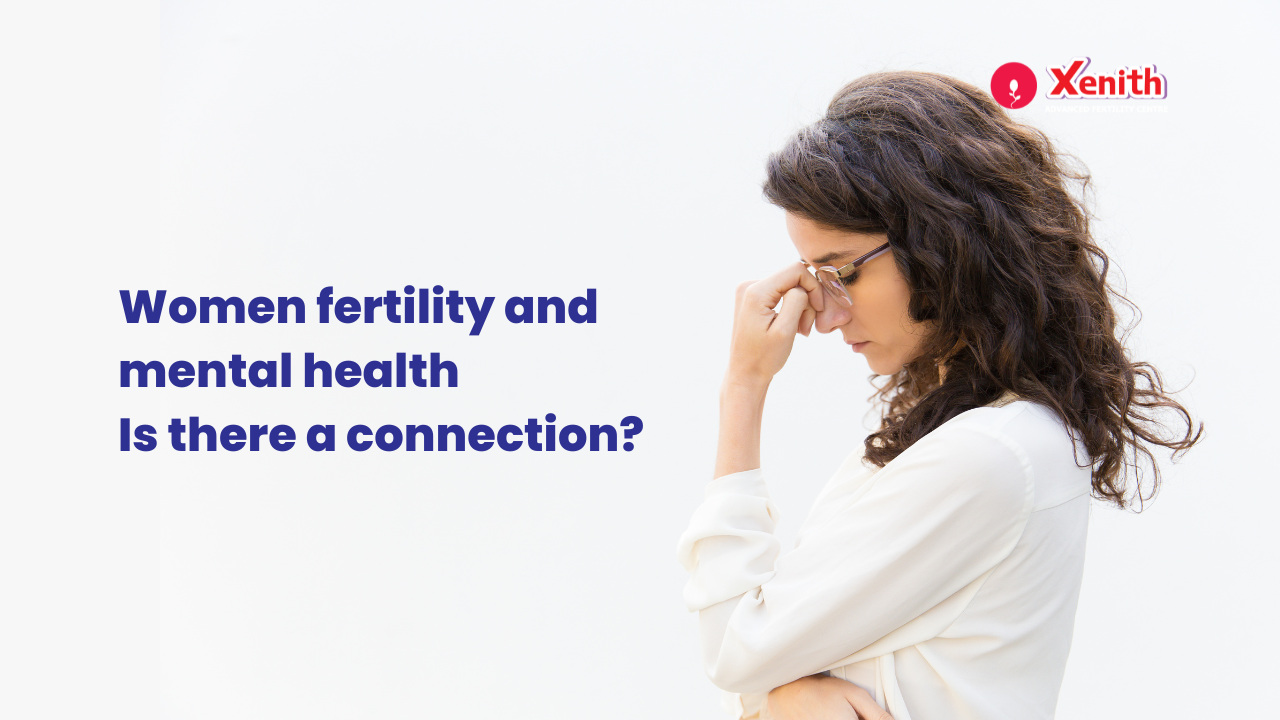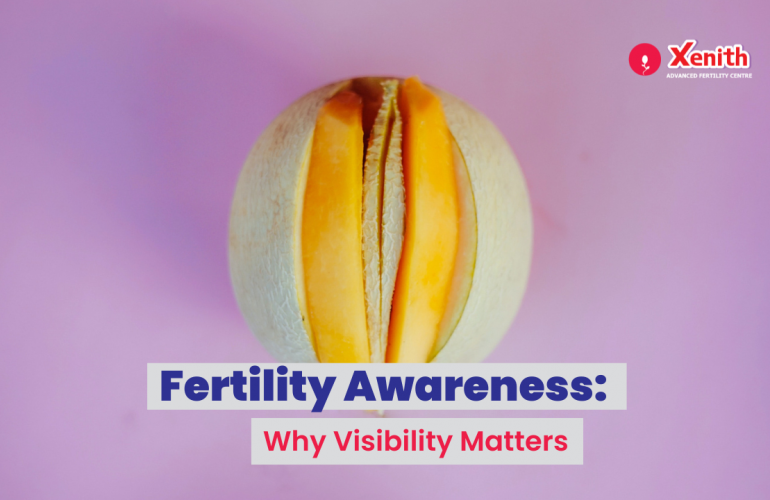Infertility, which is the inability to conceive after 12 months of unprotected sex, is becoming very common around the world. Infertility is not talked about very much and many people are often unaware of it. The number of couples seeking treatment for infertility has increased drastically because women are postponing pregnancy due to various reasons like getting higher education and furthering their career, because people are more aware of fertility treatments like IVF and ICSI, and because the success rates for such procedures have improved. However, did you know that fertility could also be affected by your mental health and it could also be the other way around where people dealing with infertility could become more prone to mental health issues like stress, anxiety and depression?
Society sometimes places a social stigma on childless couples and women might thus feel incompetent or defective and thus feel isolated. When women are diagnosed with infertility, it could trigger certain intense emotions like grief, shame, anger, denial, self blame, frustration, stress, anxiety or even depression. Stress is the response to a perceived threat or a situation whereas anxiety is the response to the stress. Anxiety might cause panic attacks for example for no apparent reason. Some of the symptoms of depression include feeling disinterested in most things, feeling hopeless or overwhelmed, having almost no energy, having insomnia, having no appetite or feeling angry amongst other things and these feelings could last more than two weeks. Most people encounter stress and anxiety in their lives but if it’s long term or if it’s unmanaged, it could affect one’s health including fertility. In order to find out the cause for the infertility, the person might need to go through various tests like blood tests, ultrasound scans, and other procedures and these might feel very invasive. Going through in vitro fertilization (IVF) or other fertility treatments in order to increase the chances of conception could increase the levels of anxiety and stress even more. By failing every month to conceive, the anxiety levels increase and then going through various treatments for it could add to the mental stress. Having recurrent miscarriages could also increase anxiety and lead to depression. Some of the medications used during IVF could also affect one’s mental health and some antidepressants taken to improve mental health could increase the risk of pregnancy loss. So, it’s important to talk to your physician about what to do.
What can affect mental health and fertility
Infertile women are more prone to mental health issues. Infertility in women could be due to many reasons such as a damaged or blocked fallopian tube which could make it difficult for the egg or the fertilized egg to travel to the uterus, endometriosis where tissue similar to the uterus lining grows outside the uterus and cause a lot of pain, polycystic ovary syndrome (PCOS) which is a hormonal condition sometimes causing eggs to form cysts, and various other diseases, infections, environment, medications and age. But sometimes, the cause for infertility could be unexplained.
Stress could affect hormone levels which could in turn affect egg quality, prevent embryo implantation in the uterus or other things. Stress could also delay ovulation or affect your sex drive,
Fertility and mental health could also be affected by lifestyle factors like diet, exercise, obesity, insomnia, smoking and drinking excessive alcohol or caffeine.
How to cope
-Talk to someone whether it’s your partner, a close friend or family, a support group or a counsellor about how you are feeling. It might help to air out your fears and feelings that you are struggling with and get advice or a different point of view. It might help to just have someone listen to your thoughts and for them to keep silent. It might also help to cry or release your pent up feelings and not keep it all bottled up inside. A psychiatrist or counsellor might teach you various coping skills on what to do when you feel anxious and to know what the warning signs would be. You could also get more educated about what you are dealing with and how to cope with it. Try not to compare how you deal with stress with others reactions because everyone deals with stress differently.
-Learn relaxation techniques like meditation, yoga or breathing exercises to decrease anxiety. Try to remove activities or things that cause you stress.
-Practice journaling and keep a diary so that you can write down or articulate your thoughts and feelings.
-Eat healthy foods filled with fruits, vegetables, nuts, whole grains and avoid processed foods, and bakery/sugary items.
-Try to get 7 hours of sleep, try to relax before going to sleep, go to sleep at set time every day, keep the room dark and don’t watch tv or mobile before going to bed. Disturbances in one’s sleep due to certain diseases or other factors could affect fertility as well as mental health. Sleep disorders could affect reproductive hormone levels in turn affecting fertility.
-Stop smoking, and limit alcohol and caffeine consumption.
-Get regular exercise like walking for at least 30 minutes daily.
-Before beginning IVF or any other treatment for fertility, it is recommended that people be counselled on what they could expect and feel emotionally during the various phases of the treatment and also be taught how to cope with such feelings. They should be educated on how to deal with their fears and help them to be better prepared and educated for the ups and downs of going through the treatment. So your mental health could affect your fertility and it’s very important to address this by talking to a mental health professional or your doctor. If you are struggling with infertility and or dealing with issues in your mental health and you don’t know what to do or where to start, try talking to your doctor and ask for advice. The experts at Xenith Advanced Fertility Centre are very well versed in such circumstances and could help you alleviate your fears and concerns so that you could go on to have a successful conception and pregnancy.




